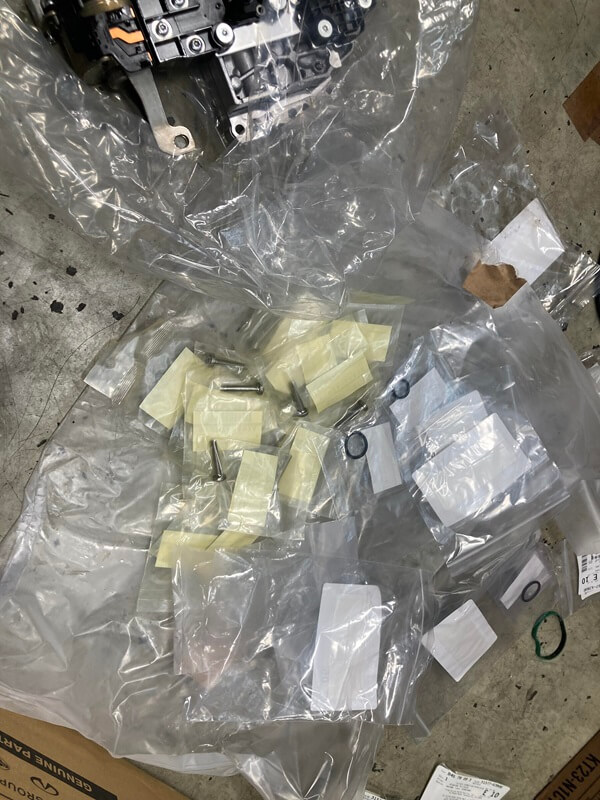It can be difficult to understand why certain choices are made when it comes to packaging. Why is the box so enormous when the item inside is tiny? Why does the order come with so many protective layers when it's unlikely to get damaged in transit?
These decisions are often wasteful and can have environmental repercussions. One Redditor took to the platform to show just one example of infuriating wrapping in the case of parts arriving at a car dealership.
They posted a picture showing a collection of bolts needed for the installation of a vehicle part, but how those bolts arrived generated plenty of confusion and similar stories in the comments section.
"Individually packaged bolts...21 of them," the image was captioned. "Lug nuts come the same way. Everything has its own plastic baggie."

"Each car at the dealership my son works at gets the washer fluid topped off…by the contents of a small plastic bottle," one Redditor shared in a similarly frustrating tale. "Hundreds of small plastic bottles a day at one dealership alone."
"I ordered 20 Hirschmann connectors a few weeks ago," relayed another commenter. "Each one in its own bag. Shameful."
"I just wish we could get bulk deliveries of the common/most used bolts for recalls or bulletin jobs (hell, even lug nuts), and then our parts department could have a drawer or two of them," said the original poster, highlighting a more sensible option that could cut down on waste.
It's a baffling choice when it seems reasonable that all the bolts could have come in a single bag or box. The plastic needed for these individual bags for such small parts soon adds up, and it's simply a waste of materials that are made at a significant environmental cost.
Plastic is mostly made from crude oil and other fossil fuels, and the process of making it produces a huge amount of planet-warming gases.
According to the Organisation for Economic Cooperation and Development, the production of plastics accounts for 3.4% of global pollution responsible for rising temperatures.
Furthermore, single-use plastics, like the ones the bolts were packaged in, are a significant problem. The Natural Resources Defense Council says that of the 300 millions tons of plastic produced annually, half is for single-use items.
Small plastic items like cutlery, straws, and bags are especially difficult to recycle because they are not often accepted at recycling centers, as they can fall between machinery parts.
This means they often end up in landfills — where they contribute to the production of methane, another planet-warming gas — or are littered, ending up in water sources and other habitats and harming wildlife.
Reducing plastic production and use is essential for environmental health. Hopefully, this employee won't be plagued by so much plastic in future deliveries.
Join our free newsletter for cool news and actionable info that makes it easy to help yourself while helping the planet.









